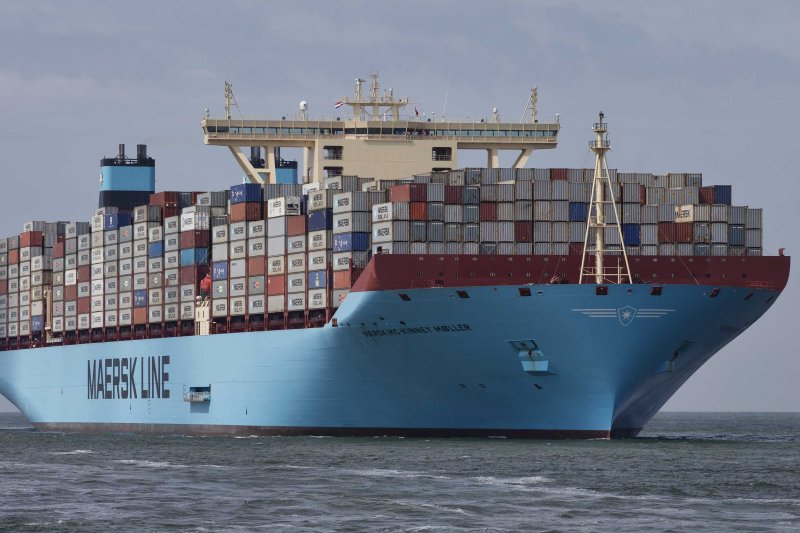The trade agreement was signed March by 11 countries, including some of America's closest trading partners -- Canada, Mexico and Japan. Had the United States joined those countries, farmers would have gained $2.9 billion in annual exports, according to the study. EPA-EFE/Jerry Lampen
EVANSVILLE, Ind., March 5 (UPI) -- The Trump administration's decision to walk away from the Trans-Pacific Partnership trade agreement in March 2018 will cost farmers nearly $2 billion annually, according to a new Purdue University study.
"The Trans-Pacific Partnership could have been big," said Wallace Tyner, an agricultural economist at Purdue who co-authored the study. "But we're out of it now."
That trade agreement was signed March by 11 countries, including some of America's closest trading partners -- Canada, Mexico and Japan. Had the United States joined those countries, farmers would have gained $2.9 billion in annual exports, according to the study.
The U.S. initiated talks that eventually led to the creation of the TTP in 2008 under the Bush administration. President Barack Obama continued the talks after taking office in 2009, and the 12 countries involved in the negotiations finally reached an agreement and signed a pact in 2016.
However, the agreement never was ratified by Congress, as it became a "target" during the 2016 presidential campaign, according to the Council on Foreign Relations.
President Trump formally withdrew from the TTP when he took office in Jan. 2017.
Following this decision, agricultural groups all over the country voiced strong concern over the loss of Pacific rim trade partners, and urged Trump to continue working to establish trade agreements with those nations.
More than 100 agriculture groups sent a letter to U.S. Trade Representative Robert E. Lighthizer and members of Congress in February 2018 urging them to rejoin TPP.
"We believe there are compelling reasons to ensure that American farmers, ranchers, agribusinesses, retailers, workers and consumers benefit from the opportunities that exist in the Asia-Pacific region," the letter said.
"American food and agricultural producers and companies are facing significant barriers in these markets that could be addressed with the improved rules and higher standards through re-engagement with the TPP countries."
Trump's withdrawal from TPP was the first in a series of moves the president has made that restrict international trade.
A year later, he imposed tariffs on steel and aluminum imports from key U.S. trading partners and began earnestly renegotiating the North American Free Trade Agreement. Several months after that, he imposed billions of dollars of tariffs on Chinese imports.
"This is not the normal way of doing business," Tyner said. "What we're doing now is diplomacy by cannon fire."
U.S. agriculture has been particularly hard hit, he added.
The study also looked at the broad implications of all the U.S. various trade disputes -- including the possibility that Trump will pull out of the North American Free Trade Agreement with Canada and Mexico without Congress ratifying its replacement -- the new U.S. Mexico Canada trade agreement. Should that happen, the agricultural sector would lose a staggering $21.8 billion a year, researchers said.
"We did [the NAFTA study] because nobody's talking about it, and it's a real possibility," Tyner said. "It's hard to get Congress to agree on anything. And, if this happens, it will be a disaster."















